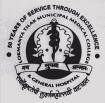 |
We would like to show you an article about the incredible Lokmanya Balgangadhar Tilak and his personality and life path. This article is written by the best writers at https://cheap-papers.com/buy-term-papers-online.php where students can buy term papers online and read more interesting information and data.
Tilak was a brilliant politician as well as a profound scholar who believed that independence is the foremost necessity for the well being of a nation. He was the first intellectual leader to understand the importance of mass support and subsequently became the first mass leader of India.Bal Gangadhar Tilak, born July 22, 1856, was universally recognized as the Father of Indian Unrest. He was one of the prime architects of modern India and heralded Asian nationalism. Tilak received Bachelor of Arts degree from “The Deccan College”, Pune in 1879 and L.L.B. from the Elphinston College, Mumbai in 1882.After graduation he spurned the Government service and devoted his time in national awakening. He joined the Indian National Congress and was among its first militant leaders who attacked the British rule and demanded self-rule for India. He blamed the British that they were exploiting India for their economical gain while they completely neglected the basic needs of the Indians.He was among the founders of the New English School, Pune (1881) of which Prof Chiplunkar became the Principal. He tried different ways to gather the different Indian communities together and start unifying them. He started the newspapers 'Kesari' and 'The Maratha' in 1881. In 1890’s he started two festivals “Ganapati Festival” and “Shiv Jayanti”, which even today exist in India.Soon he came to be regarded as the undisputed leader of Maharashtra and was honored with the title 'Lokamanya' in 1893. As the nation fumed over the partition of Bengal (1905), Tilak assumed the national leadership with his extremist attitude and stated his position unequivocally as "Swarajya (self rule) is my birth right and I shall have it." He succeeded in arousing major uprisings against the British and was titled by the western press in 1907 as the ‘father of Indian uprising’.Tilak and his associates were considered by the British as dangerous and as the main cause for the violence against them and therefore they arrested and deported them. Tilak was deported to Burma in 1907. In Burma he wrote a new commentary on the holy "Bhagwad Gita". He claimed that the main message of the Gita was action. With this commentary he tried to convince Indians to rise and fight for their rights. Tilak returned from his deportation in 1915 and became the leader of the Indian nationalism.In the 1920, Tilak's health continued to deteriorate rapidly and he went delirious and was unconscious for 3 days. His last words in the final momentary recovery were, "This happened in 1818 (End of Peshwai) and this in 1918. A hundred years' history - what a life of servitude...Unless Swaraj is obtained, India shall not prosper. It is necessary for our very own existence."At 00:40 hrs (IST) on Aug 1, 1920, he was declared dead. It is said that the British made an extraordinary request that his brain be handed over to them so that it could be studied, preserved and exhibited. It was not complied with. |
About UsContact UsDepartmentsExtra-CurricularFAQSite MapStatistical Information
|